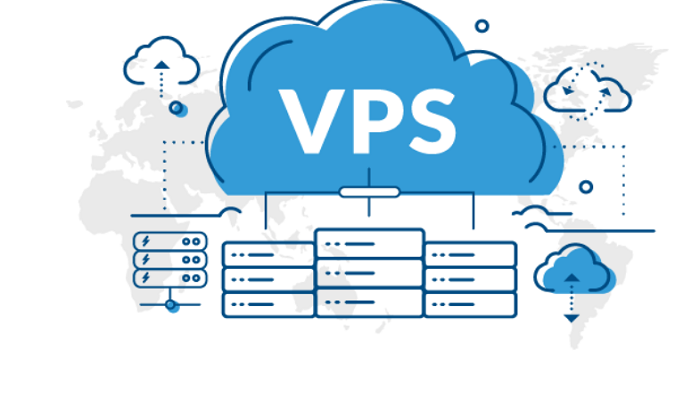In the ever-evolving landscape of web hosting, Virtual Dedicated Servers (VDS) have emerged as a robust solution providing enhanced performance, dedicated resources, and flexibility. This comprehensive guide aims to delve into the world of VDS servers, offering insights into their definition, advantages, use cases, key features, and considerations for selecting the optimal VDS hosting solution for your specific needs.
Deciphering Virtual Dedicated Servers (VDS)
1. Understanding VDS Servers
A Virtual Dedicated Server (VDS) combines the benefits of dedicated servers and virtualization technology. Much like a Virtual Private Server (VPS), a VDS operates within a virtualized environment but with a critical distinction – it mirrors the functionality and resource allocation of a dedicated server. This provides users with dedicated resources and greater control over their hosting environment.
2. Key Differences from VPS and Dedicated Servers
While VPS shares physical resources with other virtual instances, and dedicated servers offer exclusive use of a physical server, VDS strikes a balance. It delivers dedicated resources within a virtualized environment, offering a middle ground between shared hosting and a fully dedicated server.
Advantages of VDS Hosting
1. Dedicated Resources for Enhanced Performance
One of the primary advantages of VDS service is the allocation of dedicated resources. Users benefit from a specified amount of CPU power, RAM, storage, and bandwidth, ensuring consistent and high-performance hosting.
2. Improved Scalability
Similar to VPS hosting, VDS solutions offer scalability. Users can easily upgrade their plans to accommodate growing resource needs, ensuring that the hosting environment evolves with the expanding demands of websites or applications.
3. Customization and Control
VDS hosting provides users with complete control over their server environment. Root (Linux) or administrator (Windows) access allows for customization, software installations, and configuration adjustments based on individual requirements.
4. Enhanced Security Measures
With the dedicated nature of VDS hosting, security measures can be more robust. Users can implement specific security configurations, firewalls, and other measures to fortify the hosting environment.
Use Cases for VDS Hosting
1. E-commerce Platforms
VDS hosting is an ideal choice for e-commerce websites that require dedicated resources to handle transactions, secure customer data, and ensure a seamless shopping experience even during peak times.
2. Business-Critical Applications
Businesses running mission-critical applications can benefit from the reliability and performance of VDS hosting. The dedicated resources guarantee optimal operation of essential software and services.
3. Development and Testing Environments
Developers often opt for VDS hosting for creating development and testing environments. The isolated nature of VDS instances allows for the testing of applications in a controlled and secure setting.
4. High-Traffic Websites
Websites experiencing significant traffic fluctuations or sudden spikes can leverage VDS hosting to maintain consistent performance. The dedicated resources prevent performance degradation during traffic peaks.
Key Features of VDS Hosting
1. Operating System Options
VDS hosting supports a variety of operating systems, allowing users to choose an OS that aligns with their application requirements. Popular choices include various Linux distributions and Windows Server.
2. Root or Administrator Access
Users of VDS hosting typically have root (Linux) or administrator (Windows) access, providing them with complete control over the server environment. This access level is essential for customization and software installations.
3. Dedicated IP Address
VDS hosting typically includes a dedicated IP address. This is crucial for various reasons, including SSL certificate implementation, email reputation, and server access.
4. Virtualization Technology
The type of virtualization technology employed in VDS hosting influences the level of isolation between instances. Understanding the virtualization technology can impact performance, security, and the overall capabilities of the VDS server.
Choosing the Right VDS Hosting Provider
1. Performance and Uptime
Evaluate the hosting provider’s performance history and uptime guarantees. A reliable VDS hosting provider should offer a high level of availability, supported by robust server infrastructure.
2. Customer Support
Responsive and knowledgeable customer support is crucial for addressing technical issues promptly. Consider the support channels available, response times, and the provider’s overall reputation for customer service.
3. Security Measures
Assess the security features provided by the VDS host, including firewalls, DDoS protection, regular backups, and the availability of SSL certificates. A secure VDS environment is essential for protecting your data and applications.
4. Data Center Locations
Consider the physical locations of the hosting provider’s data centers. Opt for a provider with data centers strategically located to minimize latency and ensure optimal website loading times.
5. Cost Considerations
While cost is a factor, it should be considered alongside the features and resources offered. Compare pricing structures and be mindful of any additional costs for features such as backups or premium support.


















Comments